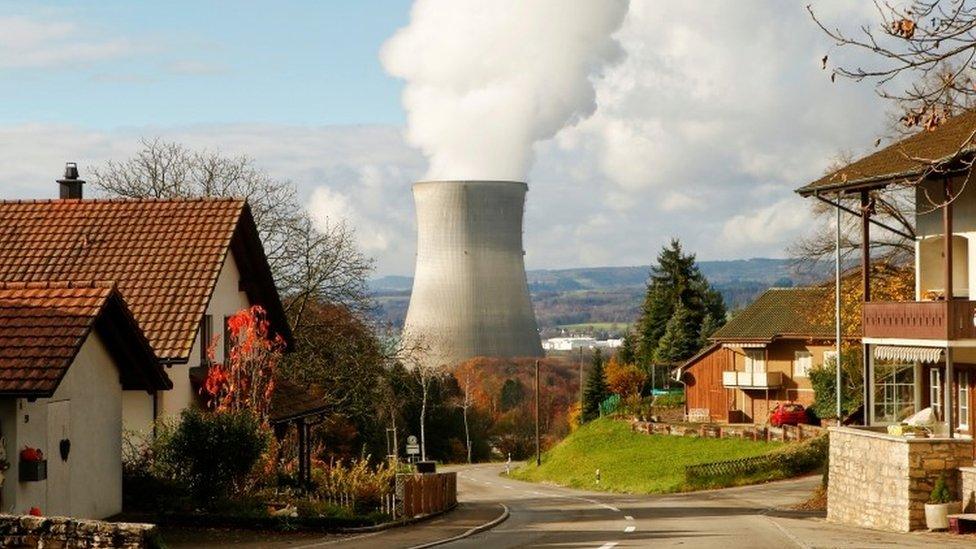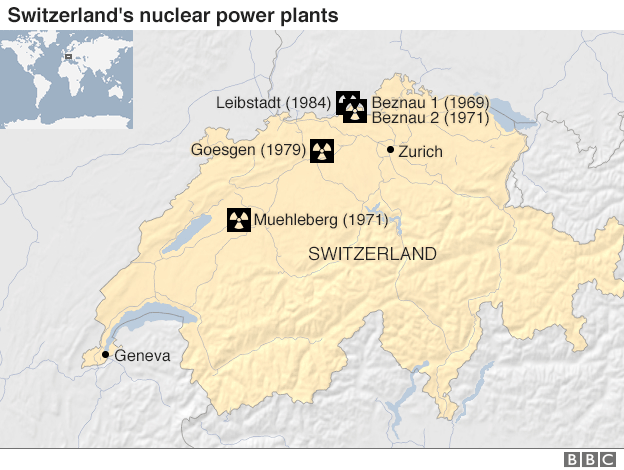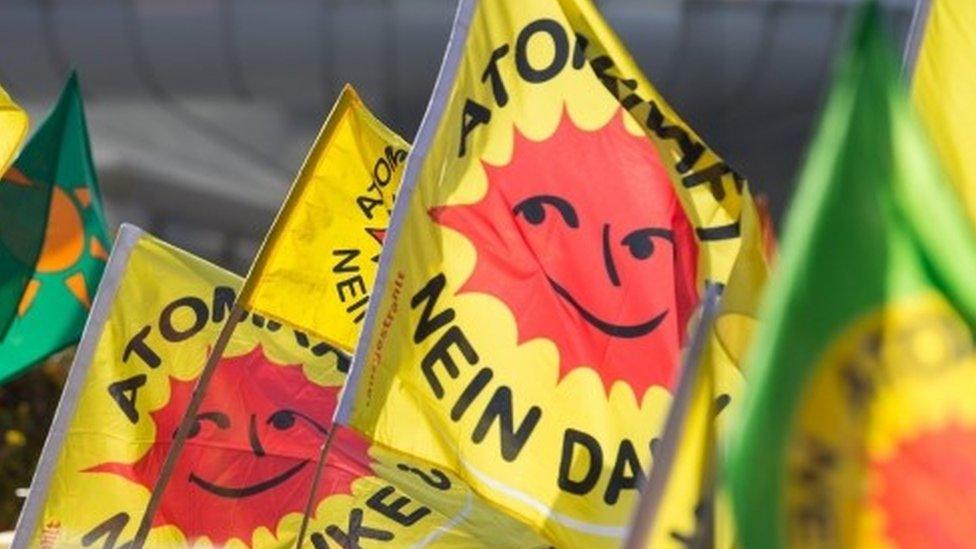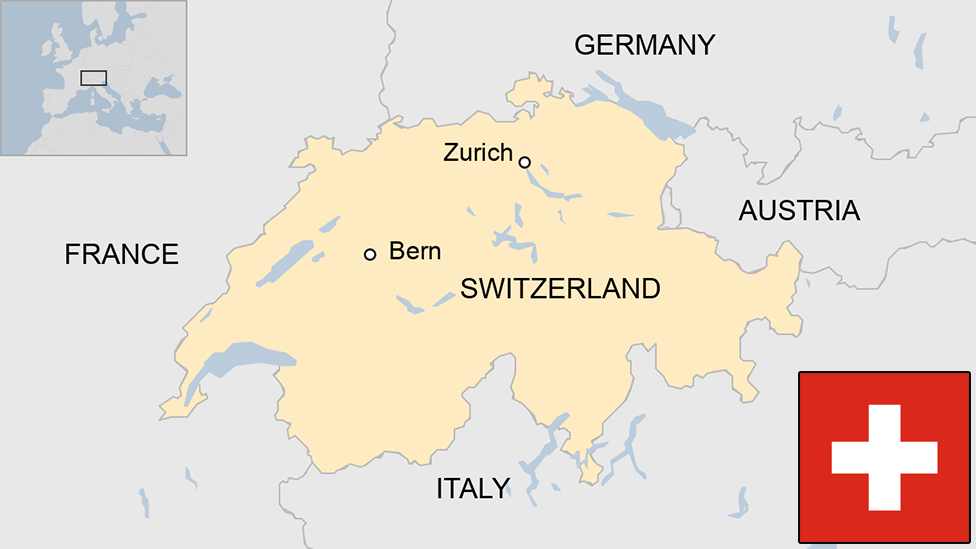Switzerland votes against strict timetable for nuclear power phaseout
- Published

Thirty-eight per cent of Switzerland's energy currently comes from nuclear power
People in Switzerland voting in a referendum have rejected a proposal to introduce a strict timetable for phasing out nuclear power.
A projection for SRF public television showed the initiative failing by 55% to 45%.
A majority of cantons (Swiss states) voted against the initiative.
The plan, backed by the Green Party, would have meant closing three of Switzerland's five nuclear plants next year, with the last shutting in 2029.
The five plants currently generate almost 40% of Switzerland's electricity.
After the Fukushima nuclear disaster in Japan, the Swiss government said it would gradually move the country towards renewable energy by 2050.
It said nuclear plants should continue to operate as long as they are deemed safe, but did not set a precise timetable.
Environmentalists have said no nuclear reactors should be allowed to operate for longer than 45 years - meaning that at least two would have had to close almost immediately.
But business leaders and the government said shutting them down too quickly could lead to power shortages and raise reliance on fossil fuels.

Why the Swiss voted no - By the BBC's Imogen Foulkes in Geneva
Swiss voters regularly follow the advice of their government and of business leaders: the vote to hang on to nuclear power was no exception.
Although many Swiss do worry about the safety of their elderly nuclear plants, fears that a rapid shut down could cause energy shortages and even blackouts proved stronger.
Over a third of Swiss energy comes from nuclear power. Switzerland is currently ranked as the world's most competitive economy, and voters don't want to do anything to undermine that.
What's more, the Swiss government does have a long-term plan to shift energy production towards renewable sources, and to gradually reduce and finally end the country's reliance on nuclear power.


- Published27 November 2016

- Published19 June 2023
